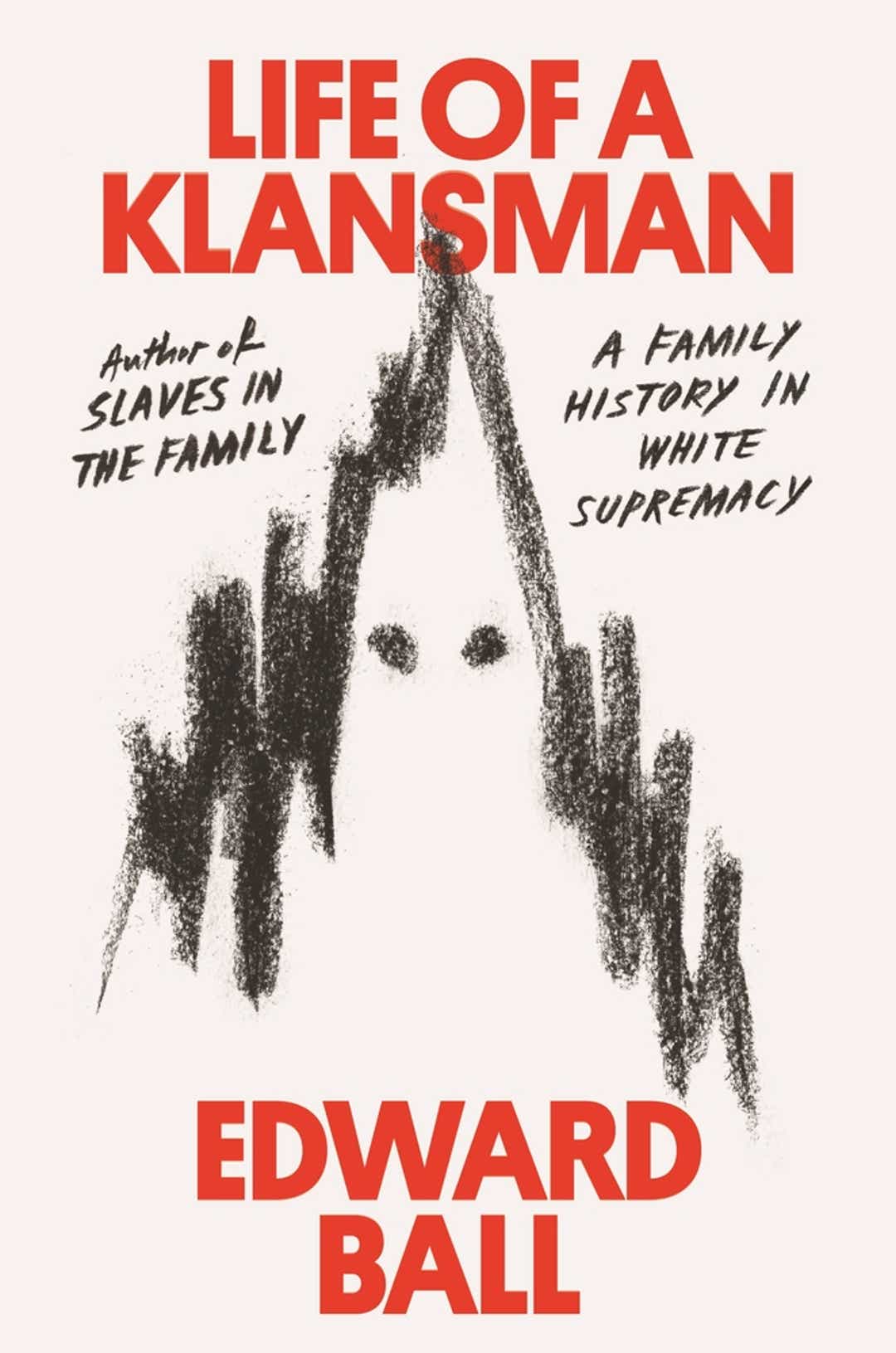Author Edward Ball has an intriguing family tree. He is descended from slave-owning plantation gentry in South Carolina on one side, and a violent white supremacist, a petit blanc, from Louisiana on the other — a man who tried to overthrow the government eight years after the Civil War. In a previous book, “Slaves in the Family,” Ball, a Yale professor, tracked down and met with descendants of the people his family had enslaved from 1698 to 1865.
Ball maintains that his troubling lineage is not that uncommon. He estimates, for example, that 137 million Americans today, more than four in 10, are related to the roughly four million Ku Klux Klansmen who were active in the 1920s.
'Memorial Drive': A former poet laureate tries to make sense of a beloved mother’s slaying
More: Looking for books about racism? Experts suggest these must-read titles for adults and kids
In his latest book, “Life of a Klansman: A Family History in White Supremacy” (Farrar, Straus and Giroux, 416 pp., ★★ out of four), he delves into the New Orleans branch of his family, focusing on an unlovely relative with a pretty name, Polycarp Constant Lecorgne. His subject fought for the Lost Cause and returned home to a world turned upside down. Former slaves could vote, hold high office and even serve in the army and local police force — for a spell, anyway.
The Lecorgnes owned several slaves, property they could rent out to provide income or sell when family finances went south. The war ended that, of course, and to make economic matters worse, Polycarp apparently, according to “family tradition,” invested his savings in Confederate war bonds.
This is a timely book. It covers another period when America sought to confront its past and make amends for centuries of oppression of African-Americans. Reconstruction, as this historical era is called, didn’t take, of course. When Black people were allowed to vote for the first time, voter suppression kicked in, too — and it wasn’t voter suppression lite, a la 2020. Louisiana had a majority Black population in 1868, and Ball cites a state legislative report on that election that found that statewide 784 potential voters were killed, 85 wounded and 265 maltreated.

In another cathartic exercise in confronting his familial past, the author locates and meets with descendants of African Americans killed in the 1866 Mechanics Institute Massacre in New Orleans. Ball admits he has no “direct evidence” that Polycarp took part, but then again the historical trail that his relative left is vanishingly thin.
To compensate throughout — and he freely confesses to this — the author supposes, surmises, imagines, suspects, and substitutes surrogate sources to fill in the gaping holes in the historical record of his family four generations back. This comes off as forced and unsatisfying. The ongoing assumption is if something bad happened in New Orleans way back when, Polycarp was in the middle of it. And maybe he was: He did take up arms against the state in 1873; that much is documented, if little else. (As a clue to how Reconstruction was going at the time, Polycarp and 12 others were indicted for treason but a white judge dismissed the charges.)
To compound matters, Ball’s prose is relentlessly truncated: short declarative sentences that leave the reader longing for a subordinate clause, a compound sentence, or even a dangling participle. Here’s a snippet that appears periodically throughout, long after the reader has grasped the point: “He is one of us, one of ours.”

At no point does the author describe his relative straight-forwardly as "my great-great-grandfather" — an omission the publisher’s publicity material does not repeat — while at times he refers to Polycarp inexplicably as “my grandfather.”
Despite the book’s flaws, Ball has done substantial research and paints an intimate, eye-opening picture of New Orleans during Reconstruction. He points out that Polycarp was something of a family hero to past generations because “he fought for whiteness, for our tribe. And if you measure the results, he won.”
"Review" - Google News
August 02, 2020 at 06:01PM
https://ift.tt/3186Adm
'Life of a Klansman' review: Edward Ball confronts the bad (racist) apples in his Family Tree - USA TODAY
"Review" - Google News
https://ift.tt/2YqLwiz
https://ift.tt/3c9nRHD
Bagikan Berita Ini














0 Response to "'Life of a Klansman' review: Edward Ball confronts the bad (racist) apples in his Family Tree - USA TODAY"
Post a Comment